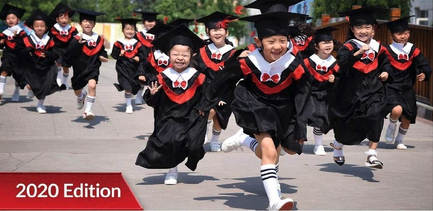The Panda Hugger’s Handbook.
The point of Godfree Robert’s little tome is that China is leading the world by example. It is by far the most successful major power on the planet. Other countries are starting to model themselves after China.

Comments on “Why China Leads the World.” by Godfree Roberts
Revised sept 2024
This book came out in 2020. It is not to be confused with “”When China Rules the World” which is from 2009. I have not read the latter but it sounds stupid, because the Chinese would not be foolish enough to try to rule the world.
Only the western Atlanticist elite could be so delusional as to imagine they could dominate every inch of the planet’s surface. For some time they seemed to believe that they did. Their attempt to regain this golden age that never was is the cause of most of the global turmoil we now have.
The point of Godfree Robert’s little tome is that China is leading the world by example. It is by far the most successful major power on the planet. Other countries are starting to model themselves after China.
The Chinese model has three elements. One is the development of cadres of highly trained and motivated professional public administrators to run government functions at all levels. They are modelled somewhat after the mandarins of old.
The second element is that they have developed a serious democracy. Most western people would not even see it as a democracy. We are all conditioned to see democracy as a lot of politicians and political parties competing to be our ‘representatives.’
In China, there is one party. Anyone who is interested and is not a complete fool can be a member. The party is governed on a delegative system, meaning that lower councils select delegates to higher councils, from the neighbourhood up to the supreme council.
There are no terms of office. No one campaigns for anything. There do not seem to be any secret ballots.
I have noticed that when people set out to build a government for themselves, without any preconceived ideas about how to run a government in their own interests, they always seem to come up with something like this. This ‘representative’ thing always seems to come about when people want to keep power within a select group. This delegated system seems to be very robust; hard for self interested people to corrupt from within.
The third element is what Roberts calls ‘data in the middle’. I would call it just an honest information system. The advantage the Chinese have is that in their culture, things are what they are. There are no multiple truths.
In western culture, going back to old Plato and his shadows in caves, people tend to believe that the world is not as it appears to be because people have different ’perceptions’. This is why westerners tend to fight so much over ridiculous things. We are much more prone to delusions than are people in Chinese and other oriental cultures.
To be able to do good planning, to make good decisions about things, you must have good information. In government, from local levels up to the national level of a huge country, that means systems for collecting, analyzing, and storing data. Roberts admits that the Chinese often get carried away with their data collection, yet that is better than the situation in the west, where data is often falsified or suppressed.
Roberts does tend to over idealize China. There are clearly flaws in China’s model. They are still overcoming the legacy of the Stalinist style of government during Mao’s time.
Much of how the modern Chinese do things would not be transportable to other countries with different cultures and different circumstances. The Chinese developed communism with Chinese characteristics. In Canada we would adopt the Chinese model with Canadian characteristics.
Roberts explains adequately how China avoided the trap that most other Stalinist style systems eventually fell into. The total corruption of the party which characterized the later Soviet Union seems to have been prevented by its democratization by Deng Xiaoping in the eighties.
Roberts does not seem to be adequately aware of the relation between China and other post Stalinist systems, but I know something and can patch that gap a little.
It seems Deng got a lot of his own reform ideas from the system developed in Yugoslavia by Tito. That is, state planning combined with economic incentives and a locally based democracy. It is hard to know how well Yugoslavia might have succeeded had it not been subverted and then bombed out of existence.
Russia went through the wild nineties after the corrupt party elite, in that very undemocratic system, sold out the old Soviet Union and its people. In this century it has been gradually disempowering the oligarchs and moving toward a China style system. It is concerning that they are still having trouble with developing a serious democracy.
One of Robert’s valuable points is that democratization is the key to developing a successful system. The way he defines democracy is important. He says, I say, and legitimate political scientists back to Plato say, that a representative system is about oligarchy, not rule by the public.
China is a democracy by results. The government serves the interests of the society as a whole. There are countries all over the globe with a superficial appearance of public participation in government, but which are run solely for the benefit of an elite and in antagonism to the common good.
The focus of most western criticism of China is what is perceived as a lack of rights. There is in fact at least as much personal freedom in China as in most western countries. The criticism comes from the warped understanding of individual rights which is pervasive in western societies.
The book was written before the covid pandemic. The experience of covid shows much about the superiority of the Chinese way and the idiocy of western ideas about rights. China has easily coped with the pandemic, its people are minimally inconvenienced by public health measures, and its economy is humming along.
The thing about China which most throws western ‘rights’ people into conniptions is the ‘social credit’ system. This is generally misrepresented in the west. It is used by the western oligarchic propaganda machine in its function of portraying China as a bad place to live.
The social credit or ‘Baihang’ system is still being tested and developed in China. It is essentially a system of rating the trustworthiness of people and organizations. Also, of course, their credit worthiness; ability to pay back loans.
I am still looking into it myself. I might one day advocate something similar in Canada. Like most people, I would like advance warning if I am dealing with a scum ball. However, the potential for abuse of such a system is obvious.
Roberts does not mention social credit at all. However, I have discovered a very interesting video from Ed Sanders, about Social Credit in China. He approves of it.
This video will be here until it is not. https://www.youtube.com/watch?v=bwkaBKzUAU8
Sanders also says he is a Panda Slayer, and has some interesting things to say which contradict Godfree’s view of China. It seems that, while there are plenty of intelligent people in China, there are a lot of people who want to take advantage of other people. Corrupt and antisocial behavior is a big problem in China.
The Social Credit system is being seen as a way to control corrupt behavior in individuals and in businesses. It has overwhelming support among the Chinese people, especially older ones, and better educated ones. The Chinese are concerned about things like adulterated food and medicines.
However, Sander’s video is from 2018. It is hard to find more recent information looking at it in an objective way. I have not had time to look hard for information about how the experiment is going.
But as to rights, the most basic ones are to have food, housing, and medical care, and to live in safe, healthy surroundings. These are often not possible for a large part of the populations in even the more supposedly advanced western countries. In contrast, severe poverty in China is now limited mostly to remote rural areas.
China is noted for lifting almost a billion people out of serious poverty over a period of one decade. Yet its Gini coefficient, its ratio of high to low income, remains high. One might conclude from this that increased income is not the most important factor in human well being.
The quality of government services would seem to be the more important factor in the reduction of poverty. This may be something for western advocates of a Basic Income to ponder. Yet China in the nineties started to develop a kind of Basic Income, the Dibuo.
The Dibuo was problematic. It was an income top up model, hard to administer and for the recipients to navigate. In recent years China has moved away from ‘free money‘ approaches.
Godfree Roberts clearly is in love with China and Chinese culture. There is indeed a lot to admire about it. China was the most advanced civilization on earth for millennia and seems to be regaining its former place in the world.
I am, however, dubious about some of the claims he makes about Chinese intellectual superiority. He quotes some westerners who do spend time in China and who start saying things like; “they really are smarter than us”. This is almost like a weird form of racism, with the supposed inferiors accepting their inferiority and idealizing their ubermenchen.
Yes, Chinese people do better academically and in many vocational skills than most western people. However, human intelligence is highly flexible and culturally mediated. You may notice that intelligence is not highly valued in societies such as Canada.
One or two generations of governance according to a different set of priorities, in countries like Canada, could have a great effect on average intellectual performance.
Roberts has done a pretty good job of refuting the various slanders thrown at China to justify a hostile policy. These have not got as vicious as those against Russia; not yet. Russia is getting the brunt of the narcissistic rage of the western elites against the loss of their privileged position in the world.
As for the supposed persecution of ethnic minorities, they are in fact treated quite well in China. They have a reasonable degree of autonomy in their own areas. They are, however, expected to fit into the dominant society.
The great majority of Uigurs who have not joined jihadi groups run by the CIA and tried to carry out terrorist operations, are doing fine. With the exception of former members of the feudal landlord class, Tibetans are doing far better today than under the Dalai Lama’s rule. It is interesting that settlers from other parts of China have trouble making it economically in Tibet and tend to go home.
Tibet is an interesting story. For centuries, after coming under the domination of Mongols, Tibet was a very brutal feudal society run by a Buddhist elite for its own benefit. The peasant class and the older Bon religion were harshly suppressed.
This is in contrast to the “Shangri La” image of preCommunist Tibet promoted by the western delusion factory.
Most of the Dalai Lamas who tried to improve conditions for the peasantry were assassinated. The present one, earlier in his reign, had to flee to the protection of the Chinese red army.
Dalai Lama number fourteen originally used China as support for carrying out reforms. Then, for unknown reasons, he turned against them, fled to India, and became a tool of the CIA. The USA tried to start a guerrilla war in Tibet but it had no support except from the old feudal elite.
As is usual for refugees fleeing the advent of socialism in their countries, most of the Tibetans in exile are descendants of the former privileged elite. The Tibetans in Tibet do not want to go back to the not so good old days. Some of them even worship Mao Tse Tung as a Bon deity.
Roberts demolishes other historical falsehoods about China generated by western propaganda. The ‘great leap forward’, a crash industrializing plan of the late nineteen fifties, was not a success but did not lead to any mass starvation either. And the Tien An Men ‘massacre’ was exactly what it looked like; a ‘color revolution’, an attempt by western intelligence services to destabilize the Chinese government.
Roberts the panda hugger is a fan of that smart old guy, Confucius. The present government of China proclaims Confucian ideals; people are basically good, government should serve the publics interests.
Governments in China have historically trended to Confucianism, but there is a darker trend in Chinese history which often comes up, usually during times of hardship and disorder. It is usually called ‘Legalism’; the idea that people are basically evil and must be disciplined by a government which rules because it has the mandate of heaven.
This tendency seems to have been a big part of the ‘cultural revolution’ of the sixties in China. Counterintuitively, big gripe of the people who were on Tien An Men square in 1989 seems to have been that the present government regime was not legalistic enough. The Chinese communist party does seem to have this tendency also within it; the party must not be questioned.
Thus, as with even the best run countries on earth, there is always the potential for China to go to the dark side. The best insurance against this is the continued success of the present government’s policies, and continued deepening of democracy. Also, for China to remain at peace.
All societies experience negative effects when they have to fight a prolonged war, even a ‘cold war’, where it feels under siege. This is the real danger in a ‘civilizational’ conflict between the west, and China and its allies. The danger declines as the former weakens rapidly and the latter grow rapidly stronger.
China is smart enough not to be provoked by the west, or to try to dominate small countries near it. It seeks trade and influence, not compliance and exploitation. However, it is prepared for war if war is forced on it.
Panda huggers are growing in numbers. I have been one for awhile; it’s fun. Wealthy people of western countries are starting to send their children to China to have some Chinese rub off on them.
Godfree Roberts has written the best handbook for Panda Huggers presently available. It provides enough material to refute the major slags against China and the Chinese. It explains why we should be learning from them, partnering with them, not fighting them.
This does not, however, mean that we should glorify them and want to be exactly like them. That is pathetic.





Comments ()